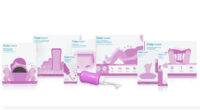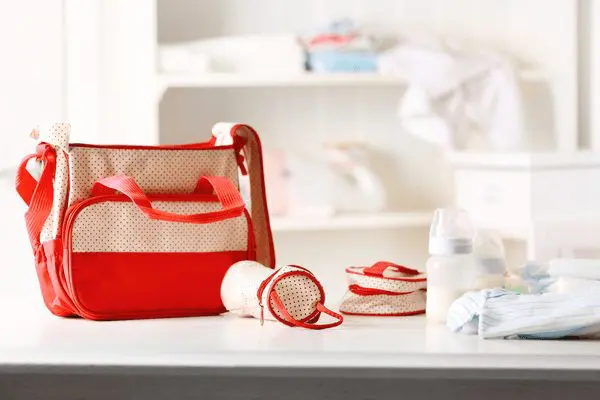As schools close, officials declare cities states of emergency, and some people stockpile toilet paper, it’s normal for expectant moms or moms who have infants to feel nervous. But we’ve gathered our best tips for coping with the coronavirus pandemic—no fear, no panic, just facts.
1. Know the risks
Expectant mothers do experience immune system changes. When you are pregnant, you should always try to avoid exposure to illness—and that includes coronavirus. However, there is no evidence showing that pregnant women have a higher risk of severe coronavirus symptoms than anyone else. There is also no evidence that the virus would be passed from mother to baby.
If you have an infant or baby, rest assured that preliminary data shows it is rare for babies to become seriously ill from coronavirus. Also, babies and children may not show symptoms if they do become ill. However, they can still transmit the virus while free of symptoms. If you have any questions or concerns, be sure to contact your OB-GYN, pediatrician, or family physician.
2. Avoid crowds
We’ve all heard a lot about “social distancing” these days—which essentially is a formal way of saying avoid crowds! Focus on standing at least 6 feet away from others to ensure droplets from coughs or sneezes will not reach you and your baby. That may mean steering clear of elevators, crowded movie theaters, concerts, and huge playdates and instead focusing on living room picnics and backyard play.
3. Stay home when possible
No, this is not the time to snag a cheap flight or strap your baby in a stroller to explore the city. Stay home and relax! If you’re preparing for a new arrival, take the chance to cocoon. Finalize the nursery, reorganize the pantry, do some yoga, or start a journal. If you have a baby, focus on togetherness: Now’s a chance to snuggle, play on the floor together, and read books. No one wanted this situation, but do your best to stay positive and consider it an opportunity to slow down from the chaos of daily life.
4. Assess your child care plan
If possible, working from home is a good option for moms. However, if you are unable to do so, be sure your child’s daycare provider is following recommended procedures regarding disinfecting and hand-washing. Little ones at daycare may share toys and play in close proximity, so change baby’s outfit and wash her hands immediately when you pick her up. A backup plan is a good idea in case of a daycare closure.
5. Feed safely
If you are formula feeding, be vigilant about preparing baby’s bottles as carefully as possible to avoid contamination. Wash your hands, and wash and sterilize bottles thoroughly.
If you are breastfeeding, continue to do so. No studies have been conducted about breastfeeding for women who have been exposed to or diagnosed with coronavirus. However, the virus has not been found to be present in breastmilk. The CDC offers guidelines that will be continuously updated. There are no specific recommendations beyond handwashing, potentially wearing a mask while breastfeeding, or having a person who is well feed baby expressed breast milk.
6. Wash everyone’s hands often
Handwashing is our best line of defense against viruses. Babies always have their hands in their mouths, and even older children sometimes like to do a quick rinse. Wash your hands and your baby’s hands regularly. For older kids, model the right way to do it and monitor them to ensure they do. Some popular children’s entertainers have great videos to help kids understand how to wash hands. Here’s one of our favorites, performed by Jack Hartmann.
7. Buy what you need—but don’t go overboard
People have a desire to stock up right now. But buying up all the soap and toilet paper is overreacting and only makes it harder for others to get what they need. Make a list that includes two weeks’ worth of food for your household, plenty of diapers, and formula if needed. Be sure you have basics like cleaning supplies and hand soap. Consumer Reports has some great tips.
8. Have a quarantine plan
It is unlikely that you will need to quarantine, but you should make a plan just in case you are exposed to coronavirus or develop symptoms. Be prepared to stay at home for a week to 10 days—and possibly beyond. Be sure you have two weeks’ worth of basics (see above) as well as necessary prescription medicine. Discuss a plan with nearby friends and family in case it comes up. For instance, perhaps a neighbor could be on call to leave groceries on your porch.
9. Be conscious of at-risk populations
Older people are at a much higher risk from coronavirus than younger people. If you have older friends or family members helping out with child care, you should make a backup plan. Also, it is a good idea to limit visits with grandparents and older loved ones during this time. Facetime or other types of video-chats are a great idea to maintain loving connections.
10. Look for credible sources
We all get overwhelmed with news, and sometimes mindless Facebook scrolling is soothing. But don’t believe everything you see on your feed! Viral posts can contain false information, and that friend of a friend may not know fact from fiction. Focus on getting information from credible sources, such as the CDC website, official news websites and channels, and government websites.
There is no denying that we are experiencing something that most of us would never have imagined. However, focusing on self-care and maintaining a positive attitude can work wonders. We at Babypalooza are thinking of you all! Drop us a note in the comments and let us know how you’re doing.





